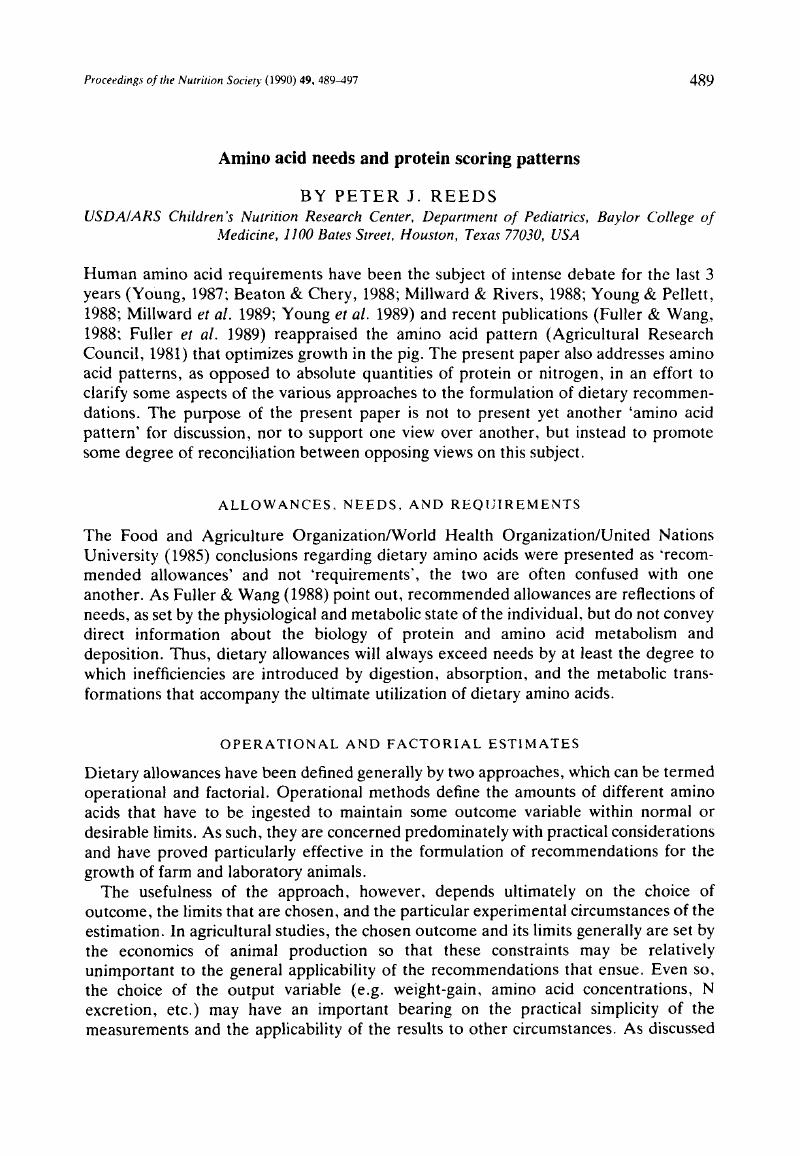Crossref Citations
This article has been cited by the following publications. This list is generated based on data provided by Crossref.
Millward, D. J.
Price, G. M.
Pacy, P. J. H.
and
Halliday, D.
1990.
Maintenance protein requirements: the need for conceptual re-evaluation.
Proceedings of the Nutrition Society,
Vol. 49,
Issue. 3,
p.
473.
Jackson, Alan A.
1990.
Protein Requirements for Catch-up Growth.
Proceedings of the Nutrition Society,
Vol. 49,
Issue. 3,
p.
507.
Young, V. R.
1991.
Nutrient interactions with reference to amino acid and protein metabolism in non-ruminants; particular emphasis on protein-energy relations in man.
Zeitschrift für Ernährungswissenschaft,
Vol. 30,
Issue. 4,
p.
239.
Reeds, P. J.
Burrin, D. G.
Davis, T. A.
and
Fiorotto, M. L.
1993.
Postnatal growth of gut and muscle: competitors or collaborators.
Proceedings of the Nutrition Society,
Vol. 52,
Issue. 1,
p.
57.
Fuller, MF
Milne, A
Harris, CI
Reid, TM
and
Keenan, R
1994.
Amino acid losses in ileostomy fluid on a protein-free diet.
The American Journal of Clinical Nutrition,
Vol. 59,
Issue. 1,
p.
70.
Reeds, PJ
and
Hutchens, TW
1994.
Protein Requirements: From Nitrogen Balance to Functional Impact.
The Journal of Nutrition,
Vol. 124,
Issue. ,
p.
1754S.
Millward, Joe
1994.
Can We Define Indispensable Amino Acid Requirements and Assess Protein Quality in Adults?.
The Journal of Nutrition,
Vol. 124,
Issue. ,
p.
1509S.
Young, Vernon R.
and
El-Khoury, Antoine E.
1996.
Human Amino Acid Requirements: A Re-Evaluation.
Food and Nutrition Bulletin,
Vol. 17,
Issue. 3,
p.
1.
Eastwood, Martin
1997.
Principles of Human Nutrition.
p.
67.
Eastwood, Martin
1997.
Principles of Human Nutrition.
p.
105.
MacCoss, Michael J.
Fukagawa, Naomi K.
and
Matthews, Dwight E.
2001.
Measurement of intracellular sulfur amino acid metabolism in humans.
American Journal of Physiology-Endocrinology and Metabolism,
Vol. 280,
Issue. 6,
p.
E947.
Fürst, Peter
and
Stehle, Peter
2004.
What Are the Essential Elements Needed for the Determination of Amino Acid Requirements in Humans?.
The Journal of Nutrition,
Vol. 134,
Issue. 6,
p.
1558S.
Papet, Isabelle
Rémond, Didier
Dardevet, Dominique
Mosoni, Laurent
Polakof, Sergio
Peyron, Marie-Agnès
and
Savary-Auzeloux, Isabelle
2019.
Nutrition and Skeletal Muscle.
p.
335.



